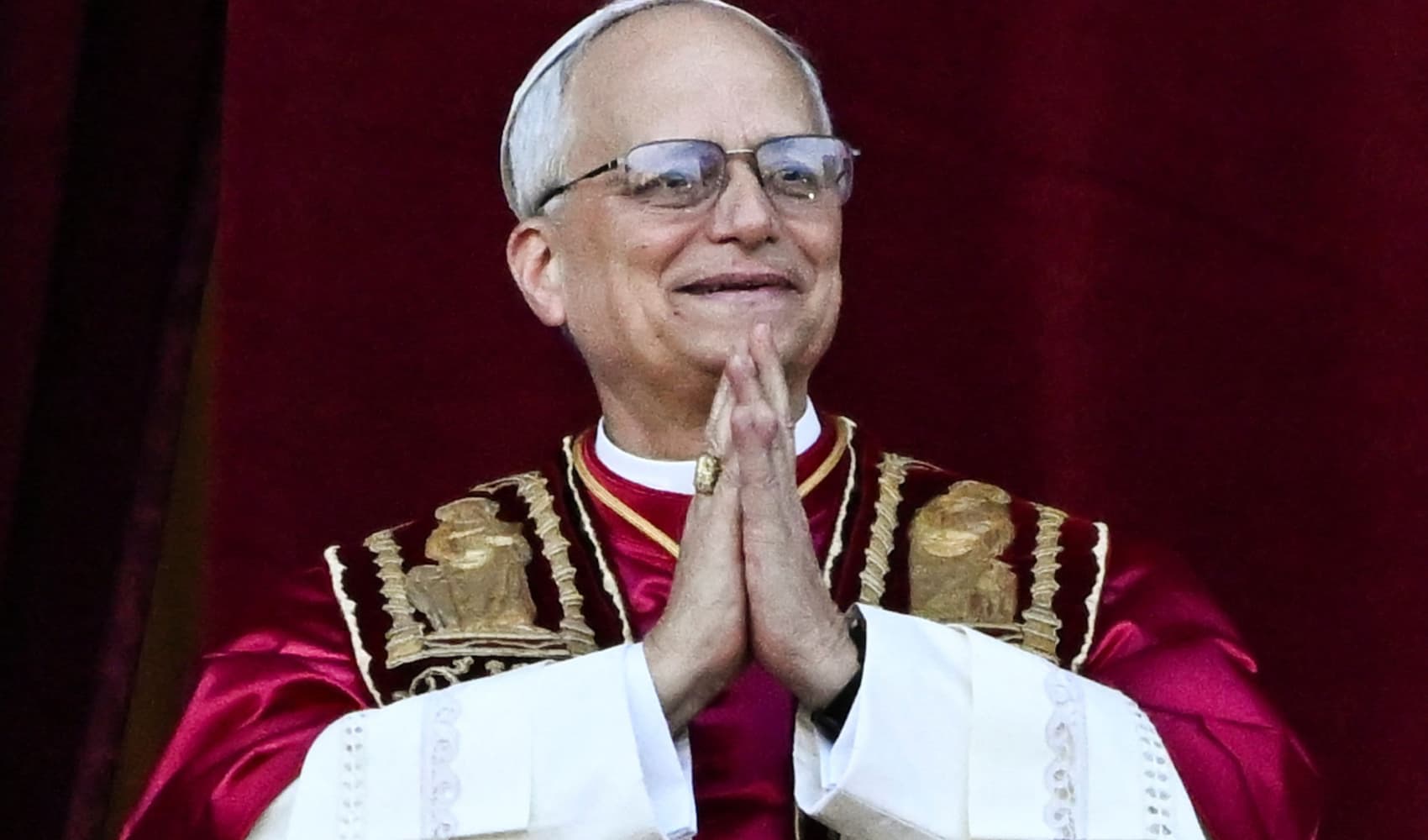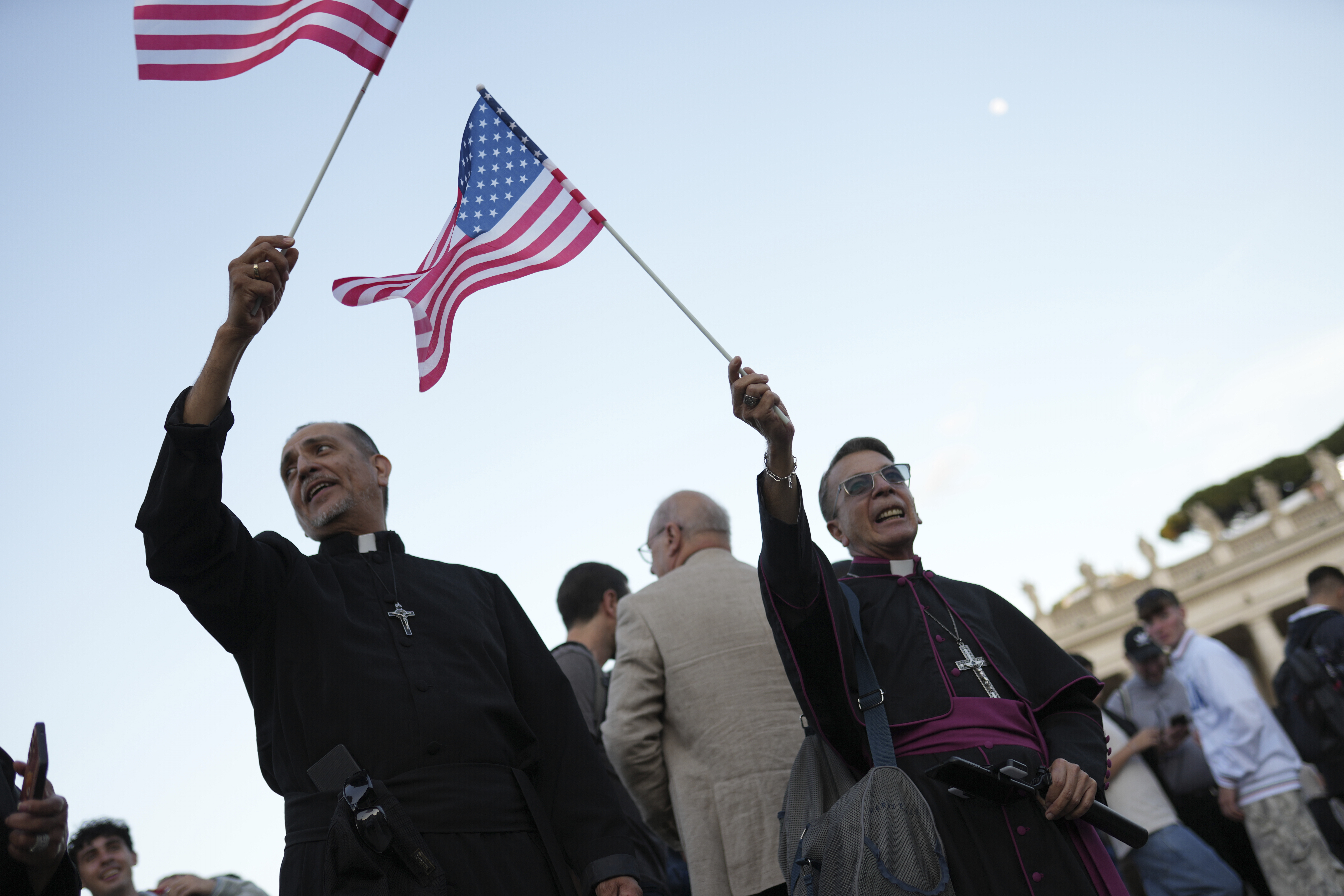Pope Leo XIV: AI, Workers Rights & Echoes of History
Pope Leo XIV: A Name Echoing History, Confronting AI
Introduction: A New Leo, an Old Legacy
The world watched with bated breath as the white smoke billowed from the Sistine Chapel, signaling the election of a new Pope. But beyond the pomp and circumstance, a more profound story began to unfold: the story behind the chosen name, Leo XIV. But why Leo? What echoes of the past resonated in this seemingly simple choice? The answer, it turns out, lies in a deep connection to social justice, workers' rights, and a brave new world shaped by artificial intelligence. Let's delve into the reasons behind this significant selection and what it signifies for the future of the Catholic Church and the world.
Leo XIII: A Pioneer of Social Teaching
Pope Leo XIV explicitly stated that his name was chosen, in part, to honor Pope Leo XIII. But who was this predecessor, and why is he so revered? Leo XIII, who reigned from 1878 to 1903, was a true visionary. He wasn't just a spiritual leader; he was a social reformer who dared to speak out against the injustices of the Industrial Revolution.
Rerum Novarum: A Landmark Encyclical
One of Leo XIII's most enduring legacies is his encyclical Rerum Novarum ("Of New Things"), published in 1891. This groundbreaking document addressed the plight of the working class, advocating for fair wages, safe working conditions, and the right to form labor unions. It was a watershed moment, establishing the Catholic Church as a vocal advocate for social justice.
A Response to Industrial Injustice
Imagine the scene: factories churning out goods at an unprecedented rate, but at the cost of human dignity. Workers, including children, toiled for long hours in dangerous environments for meager pay. Leo XIII saw this injustice and refused to remain silent. Rerum Novarum was his response, a call for a more humane and just economic order.
Echoes of Francis: Continuing the Commitment to Social Justice
The new Pope also acknowledged the influence of Pope Francis, suggesting a continuation of his commitment to social justice. How will this manifest? What specific issues will be prioritized?
A Focus on the Marginalized
Pope Francis consistently championed the cause of the poor, the marginalized, and the vulnerable. His papacy was marked by a deep concern for refugees, immigrants, and victims of economic inequality. Leo XIV's nod to Francis suggests a continuation of this compassionate approach.
Environmental Stewardship: Care for Our Common Home
Another key aspect of Francis's papacy was his emphasis on environmental stewardship, as articulated in his encyclical Laudato Si'. Will Leo XIV take up this mantle and continue to advocate for the protection of our planet? It seems likely, given his stated commitment to social justice.
The New Industrial Revolution: AI and Its Implications
Leo XIV recognizes that the world faces new challenges, particularly those stemming from the rise of artificial intelligence. But what specific concerns does he have? And how does he plan to address them?
AI and the Future of Work
The rise of AI is transforming the labor market at an unprecedented pace. While AI has the potential to create new opportunities and improve productivity, it also poses a threat to jobs, especially those that are repetitive or easily automated. How can we ensure that the benefits of AI are shared by all, and not just a select few?
Ethical Considerations: Navigating the Moral Minefield
AI raises a host of ethical questions. How do we ensure that AI systems are fair, unbiased, and transparent? How do we prevent AI from being used for malicious purposes, such as surveillance or the spread of misinformation? These are complex issues that require careful consideration.
Workers' Rights in the Age of AI
How does the church plan to ensure workers’ rights in this age? What are the practical steps the Church will take to protect workers' rights in a world increasingly shaped by AI?
Advocating for Fair Labor Practices
Just as Leo XIII advocated for fair labor practices during the Industrial Revolution, Leo XIV is likely to champion similar principles in the age of AI. This could involve advocating for policies that protect workers from displacement, provide retraining opportunities, and ensure that they receive a fair share of the benefits generated by AI.
Promoting a Human-Centered Approach
The Church can also play a role in promoting a human-centered approach to AI development and deployment. This means prioritizing human well-being, dignity, and autonomy in the design and use of AI systems. It also means ensuring that AI is used to augment human capabilities, rather than replace them entirely.
Robert Francis Prevost: The First American Pontiff? Not Quite...
The information provided states that Cardinal Robert Francis Prevost is the first American pontiff. This is factually incorrect. So, why is this misinformation circulating, and what should we know about the actual current Pope and his origins?
Clarifying the Facts
It is crucial to clarify that Cardinal Robert Francis Prevost is *not* the current Pope, nor is he the first American Pope (because there hasn't been one). This statement is misleading and should be disregarded. It's important to rely on verified sources for accurate information about the Catholic Church and its leadership.
Focusing on the Actual Pope's Background
Understanding the actual Pope's background and experiences is crucial for understanding his priorities and perspectives. His life experiences shape his understanding of the world and influence his decisions as the leader of the Catholic Church.
The Church's Social Teaching: A Timeless Resource
Leo XIV emphasizes the importance of the Church's social teaching as a guide for navigating the challenges of our time. But what exactly is this social teaching, and why is it so relevant?
A Framework for Justice and Peace
The Church's social teaching is a rich body of principles and values that address a wide range of social, economic, and political issues. It is rooted in the Gospel and the teachings of Jesus, and it provides a framework for building a more just and peaceful world.
Key Principles: Dignity, Solidarity, and Subsidiarity
Some of the key principles of the Church's social teaching include the dignity of the human person, the common good, solidarity with the poor and vulnerable, and subsidiarity (the principle that decisions should be made at the lowest possible level of government or organization). These principles provide a moral compass for navigating the complexities of modern life.
Looking Ahead: The Challenges and Opportunities
What are the biggest challenges facing the Church and the world today? And what opportunities exist for creating a better future?
Addressing Inequality and Poverty
Despite significant progress in recent decades, inequality and poverty remain pervasive problems around the world. The Church has a vital role to play in advocating for policies that promote economic justice and opportunity for all.
Promoting Peace and Reconciliation
In a world plagued by conflict and division, the Church can serve as a bridge-builder, promoting dialogue, understanding, and reconciliation. This requires a commitment to nonviolence, diplomacy, and the pursuit of justice for all.
Conclusion: A Legacy of Justice, a Future Shaped by AI
Pope Leo XIV's choice of name is more than just a historical nod; it's a declaration of intent. It signals a commitment to social justice, a recognition of the challenges posed by artificial intelligence, and a determination to apply the timeless principles of the Church's social teaching to the problems of our time. He acknowledges the legacy of Pope Leo XIII and carries the torch forward into a world increasingly shaped by technology and the urgent need for ethical leadership. The future remains uncertain, but with faith, courage, and a commitment to justice, we can build a world that is more humane, equitable, and sustainable.
Frequently Asked Questions
- Why did Pope Leo XIV choose his name? He chose it, in part, to honor Pope Leo XIII for his commitment to social justice and workers' rights, particularly during the Industrial Revolution.
- What is Rerum Novarum, and why is it important? Rerum Novarum is a landmark encyclical written by Pope Leo XIII in 1891. It addressed the plight of the working class and advocated for fair wages, safe working conditions, and the right to form labor unions. It established the Church as an advocate for social justice.
- How will Pope Leo XIV address the challenges posed by artificial intelligence? He plans to utilize the Church’s social teachings to advocate for fair labor practices, promote human-centered AI development, and ensure AI benefits all, not just a select few.
- What is the Church's social teaching? It's a body of principles and values addressing social, economic, and political issues, rooted in the Gospel and teachings of Jesus. It promotes dignity, the common good, solidarity, and subsidiarity.
- What is the role of the Church in promoting peace and reconciliation? The Church can serve as a bridge-builder, promoting dialogue, understanding, and reconciliation in a world plagued by conflict and division. This requires a commitment to nonviolence, diplomacy, and the pursuit of justice for all.

